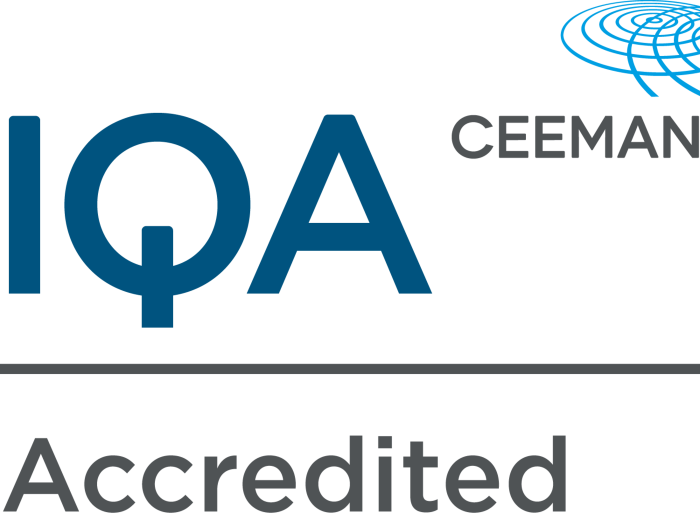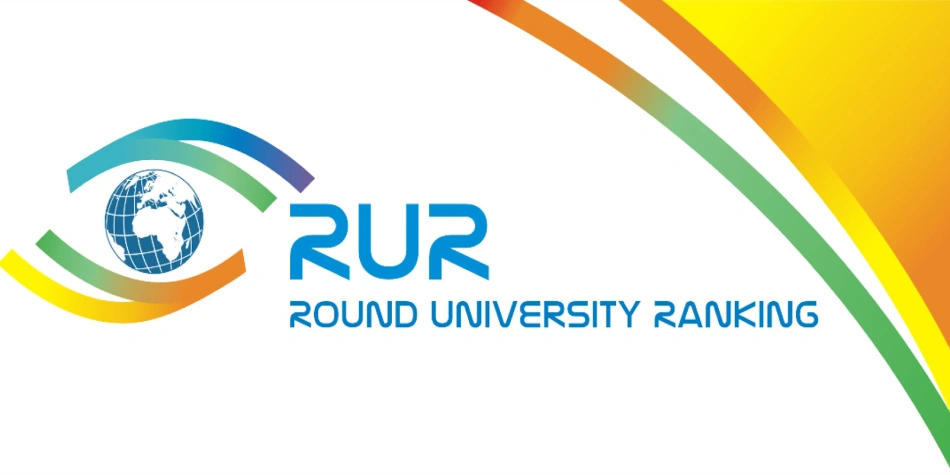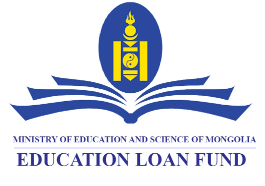INTERNATIONAL STUDENTS
NATIONALITIES
LANGUAGES SPOKEN BY STAFF
LANGUAGES OF STUDIES
PARTNER UNIVERSITIES
INTERNATIONAL ORGANIZATIONS
2nd University in Poland
according to the internationalisation criteria
by Perspektywy
VIZJA University actively cooperates with many international universities.
We offer double degree programmes, summer schools, holiday courses and in-service training for international partners. International cooperation is an essential aspect of VIZJA’s academic endeavours.
VIZJA University is involved in numerous research projects within structured research programmes and networks as well as through informal contacts between researchers.
The School of Business received a prestigious international accreditation
CEEMAN IQA

more
The University collaborates with many prestigious and renowned academic institutions and research centres in different countries.
Europe
- Pilyp Orlyk International Classical University (Ukraine)
- University ”Fehmi Agani” in Gjakova (Kosovo)
- Public University „Kadri Zeka” (Kosovo)
- Eurasia International University (Armenia)
- University College "Beder" (Albania)
- Aleksandër Mosiu University Durrës (Albania)
- University UKSHIN Hoti Prizren (Kosovo)
- Epoka University (Albania)
- Northern University (Armenia)
- Europea di Roma (Italy)
- Business School PAR (Croatia)
- University of Applied Sciences in Security and Safety in Zagreb (Croatia)
- Ivano-Frankivsk National Technical University of Oil and Gas (Ukraine)
- Ternopil V. Hnatiuk National Pedagogical University (Ukraine)
- University of Applied Sciences and Arts Northwestern Switzerland, School of Applied Psychology (Switzerland)
- Rome Business School (Italy)
- Polissia National University (Ukraine)
- University PIM (Bosnia and Herzegovina)
- NGO International Educators and Scientists Foundation (Ukraine)
Asia
- The International University of Kyrgyzstan (Kyrgyzstan)
- Kyrgyz-German Institute of Applied Informatics (Kyrgyzstan)
- Technical School of Innovation of American University of Central Asia - Bishkek (Kyrgyzstan)
- The American University of Central Asia (Kyrgyzstan)
- The Cihan University (Iraq)
- Azerbaijan State University of Economics (Azerbaijan)
- Kazakh University of Economics, Finance and International Trade (Kazakhstan)
- Universitas Islam Indonesia (Indonesia)
- CITI University (Mongolia)
- Khazar University (Azerbaijan)
- Kazakhstan International Linguistic College (Kazakhstan)
- Tbilisi International Academy (Georgia)
- International Black Sea University (Georgia)
- The Caucasus International University (Georgia)
- East European University (Georgia)
- Alterbridge International University of Management and Communication (Georgia)
- New Vision University (Georgia)
- Centre for Study Overseas Inc. (China)
- Private School Aisi, Tibilisi (Georgia)
- The Guivy Zaldastanishvili American Academy, Tibilisi (Georgia)
- Universiti Teknikal Mara SDN. BHD. (UniKL) (Malaysia)
- Jilin International Studies University (Jilin Province, China)
- Ajeenkya DY Patil University (India)
- Ala-Too International University (Kyrgyzstan)
- Skyline University College (United Arab Emirates)
- Sichuan TOP IT Vocational Institute (China)
- University of Saint Joseph Macao (Macao)
- VNU University Of Economics and Business (Vietnam)
- Chang Jung Christian University (Taiwan)
- INTI International University & Colleges (Malaysia)
Africa
- Vaal University of Technology, Vanderbijlpark (South Africa)
- Tshwane University of Technology, Pretoria (South Africa)
South America
- The University of the Frontier (Chile)
- Universidad San Francisco de Quito (Ecuador)
- The University of Talca (Chile)
- Universidad del Rosario (Colombia)
- Universidad de Santiago de Chile (Chile)
- Univesidad de los Andes (Chile)
- Universidad de Moron (Argentina)
- Universidad del Norte Santo Tomás de Aquino (Argentina)
- Universidad de Ciencias y Humanidades (Peru)
- Universidad Católica de Salta (Argentina)
- Universidad Femenia del Sagrado Corazon (Peru)
- Universidad Privada Bolivia Funacion Educativa UPB (Bolivia)
North America
- College of Saint Elizabeth (USA)
- Troy University (USA)
- University of Saskatchewan (Canada)
Double degree
Our University runs a double degree programme in partnership with several institutions.
This allows students from partner universities to join our academic community after completing their first year of studies.
We are currently involved in double degree programmes
with the following institutions:
-
International Black Sea University (Georgia)
-
International University of Kyrgyzstan (Kyrgyzstan)
-
The International Classical University of F. Orlik ( Ukraine)
-
Kyrgyz-German Institute of Applied Informatics (Kyrgyzstan)
- The International Teaching University of Management and Communication Alterbridge (Georgia)
-
Eurasia International University (Armenia)
- East European University (Georgia)
-
Kazakh University of Economics, Finance and International Trade (Kazakhstan)
-
International University of Novi Pazar (Serbia)
-
University UKSHIN Hoti Prizren (Kosovo)
- University College „Beder” (Albania)
- Georgian National University (Georgia)
- Public University „Kadri Zeka” (Kosovo)
- Caucasus International University (Georgia)
- Ala-Too International University (Kyrgyzstan)
Membership in
international organisations
CEEMAN – Central and East European
Management Development Association
VIZJA University is a member of CEEMAN (Central and East European Management Development association) – an international association founded in 1993 with a focus on management development to accelerate the quality of management education in Central and Eastern Europe. Years later, it is a global network of organisations committed to quality education and innovation in management. In pursuit of professional excellence, CEEMAN supports the quality of management development and change processes by promoting education, research, consultancy and information. The association’s comprehensive approach to management encourages innovation, creativity and appreciation of cultural values. CEEMAN offers IQA accreditation to educational institutions that meet the established standards.

PRME – Principles for Responsible
Management Education
VIZJA University is also a member of PRME (Principles for Responsible Management Education), a United Nations-backed platformed established in 2007. Its main objective is to spread the principles of responsible management education by making sustainability standards more relevant in higher education institutions around the world.
With more than 650 members worldwide, PRME has become the largest organised network linking the United Nations with management-related higher education institutions. PRME follows its Six Principles, which commit business schools to equipping future leaders with the skills needed to reconcile economic and sustainable development goals. These principles are:
- developing the capabilities of students to be future generators of sustainable value for business and society at large and to work for an inclusive and sustainable global economy;
- incorporating into academic activities, curricula and organisational practices the values of global social responsibility as portrayed in international initiatives such as the United Nations Global Compact;
- creating educational frameworks, materials, processes and environments that enable effective learning experiences for responsible leadership;
- engaging in conceptual and empirical research that advances our understanding about the role, dynamics and impact of corporations in the creation of sustainable social, environmental and economic value;
- interacting with managers of business corporations to extend our knowledge of their challenges in meeting social and environmental responsibilities and to explore jointly effective approaches to meeting these challenges;
- facilitating and supporting dialog and debate among educators, students, business, government, consumers, media, civil society organisations, and other interested groups and stakeholders on critical issues related to global social responsibility and sustainability.
CEEPUS – Central European Exchange Program for University Studies
VIZJA University is included in the network of CEEPUS accredited universities.
The main objective of the CEEPUS (Central European Exchange Programme for University Studies) Agreement is to support academic exchange in the field of training and professional development of students and academic staff. It enables the intensification of contacts between universities in the signatory countries by funding academic mobility.
CEEPUS programme offers:
- short-term scholarships for academic internships within the academic networks;
- short-term scholarships in the framework of ‘Freemover’ academic internships;
- short-term scholarships for summer schools and intensive courses.
CEEPUS scholarships abroad can be applied for by:
- students;
- doctoral students;
- and academics.
The current signatories of the Agreement are:
Albania, Austria, Bosnia and Herzegovina, Bulgaria, Croatia, Czech Republic, Hungary, Kosovo (University of Pristina), Moldova, Montenegro, North Macedonia, Poland, Romania, Serbia, Slovakia and Slovenia.
Within the framework of the currently implemented CEEPUS III Agreement, more than 500 Polish students and doctoral students, and about 300 academic staff participate annually in various forms of education and improvement of professional qualifications. On average, about 300 international students and doctoral students, and about 200 academic staff come to Poland under the programme during one academic year.
The coordinator and creator of the network is Prof. Miroslava Kacaniova (a new member of our University), and the coordinator of the CEEPUS programme at VIZJA is Dr Maciej Kluz.
VIZJA University in international rankings
THE Impact Ranking
Impact Rankings, prepared by the Times Higher Education, is the only international ranking of universities against the UN’s Sustainable Development Goals. The aim of the ranking is to promote universities that are tackling today’s key challenges and making the greatest contribution to building a sustainable society..
Our University is proud to have been included in this year’s ranking in four areas:
- Good health and well-being,
- Decent work and economic growth,
- Reducing inequalities,
- Partnerships for the goals.
Webometrics Ranking
The Webometrics Ranking of World Universities is an initiative of the Cybermetrics Lab, a research group belonging to the Consejo Superior de Investigaciones Científicas (CSIC), the largest public research institution in Spain. Using quantitative methods, the Cybermetrics Lab has designed and applied indicators that allow us to measure scientific activity on the web. The cybermetric indicators are useful for evaluating science and technology, and they are the perfect complement to the result obtained with bibliometric methods in the scientometric study. Currently, our university holds the 3,353rd position worldwide.

Positive Impact Rating – PIR

The Positive Impact Rating (PIR), initiated by a group of business school experts, is a Swiss association that regulates evaluations. The aim of PIR is to capture the voice of students in order to identify the positive impact of schools, to move from competition to cooperation and to prove tools to implement change.
As of now, our University is a level 3 progressing school.
QS World Universities Ranking

The QS World University Rankings have been published since 2004. From 2004 to 2009, the list was called THES-QS World University Rankings and represented the 200 best higher education institutions in the world.
In the published rankings, our University achieved the following positions:
- 479th place in the overall European ranking,
- 64th place among all universities in Eastern Europe.
In the overall European ranking we are in the range of 551-600.
The ranking too into account the following factors:
- faculty reputation;
- reputation as an employer;
- internationalisation of the university, including the number of international faculties and students, as well as academic exchange programmes conducted;
- student-faculty ratio;
- academic publications.
Round University Ranking 2025

Vizja University has been included in the latest Round University Ranking 2025, achieving:
- 10th place among higher education institutions in Poland
- 919th place in the global ranking
- Quality of teaching
- Level of research
- Internationalization
- Sustainability initiatives
Cooperation with foundations

Fundación Beca
The Beca Foundation (Fundación Beca) has been offering scholarships to Mexicans and Latin Americans since 2005. Today, there are more than 1,000 scholarship holders from all Latin American countries who have successfully completed their studies at prestigious universities around the world. For 13 years, the foundation had focused on post-graduate studies. However, in 2018, in response to the interests of the new generation and the demand of the labour market, the Board of Trustees of the Fundación Beca decided to incorporate new educational programmes that can help young people in their professionalisation and access a better quality of life. At this stage, collaborative agreements are being incorporated to purse undergraduate degrees in Mexico or abroad, as well as to participate in specialisation programmes such as diplomas and summer courses, conducted on-site or online.

Education Loan Fund
The Education Loan Fund (ELF), an implementing agency of the Ministry of Education and Science of Mongolia, provides student loans and grants to Mongolian and international students. The main objective our the organisation is to provide complex financial services to students in order to enable them to obtain a quality education and to provide equal opportunities for education regardless of economic and social background, geographical aspects, age, gender and physical disabilities. In order to achieve goals in the field of education financing, ELF plans to expand its cooperation with foreign higher education institutions, governmental and non-governmental organisations who primary mandate is related to the support of education. According to the state policy, students from low-income families, families with disabilities and partially orphaned families have access to loans. Orphans and students with disabilities are eligible for tuition free grands. Students who have demonstrated outstanding performance and are studying in the Pedagogy and Nursing undergraduate programmes are exempt from paying tuitions fees. ELF provides interest-free student loans to those studying at national higher education institutions.
Student mobility for the purpose of internships, professional trainings and part of studies in international institutions is possible under the Erasmus+ programme.
more![]()
Exchange programme for VIZJA students
The Erasmus+ programme is not the only option to gain international educational experience. VIZJA Univeristy’s students also have the opportunity to go to the following universities as part of our proprietary student exchange programme, at no extra cost for tuition:
VNU University of Economics and Business (Vietnam)
New Vision University (Georgia)
Jilin International Studies University (Jilin Province, China)
University of Applied Sciences and Arts Northwestern Switzerland, School of Applied Psychology (Switzerland)
Ala-Too International University (Kyrgyzstan)
Dongguk University (South Korea)
Skyline University College (United Arab Emirates)
Universidad del Norte Santo Tomás de Aquino (Argentina)
Universidad Católica de Salta (Argentina)
Universidad Privada Bolivia Funacion Educativa UPB (Bolivia)
Universiti Teknikal Mara SDN. BHD. (UniKL) (Malaysia)
Tshwane University of Technology, Pretoria (South Africa)
Troy University (USA)
Ivano-Frankivsk National Technical University of Oil and Gas (Ukraine)
Free Academy of Tbilisi (Georgia)
Universidad de Santiago de Chile (Chile)
Univesidad de los Andes (Chile)
Universidad de Ciencias y Humanidades (Peru)
Universidad Femenia del Sagrado Corazon (Peru)
University of Saint Joseph Macao (Macao)
Chang Jung Christian University (Taiwan)
ENROLMENT PRINCIPLES
In order to enrol in the student exchange programme, the candidate must:
- be a student of VIZJA University;
- be a full-time undergraduate/graduate or long-cycle student (at the time of application, the applicant must have completed at least the first year of undergraduate studies);
- be a resident of the Republic of Poland;
- have a high grade point average in previous periods of study;
- speak English and/or Spanish;
- not be on exeat;
- not be involved as a defendant in disciplinary proceedings.
ENROLMENT TAKES PLACE ON THE DATES BELOW:
for the summer term – deadline is November 30, results on December 6;
for the winter term and the following academic year – deadline is May 30, results on June 6.
FOR DETAILED ENROLMENT CRITERIA AND RULES OF PARTICIPATION IN THE STUDENT EXCHANGE PROGRAMME, PLEASE REFER TO THE REGULATIONS.
Academic Exchange Regulations [doc, 1.0 MB]
Application form [doc, 1.0 MB]
REQUIRED DOCUMENTS
2 Language certificate or certificate issued by the Director of the VIZJA Foreign Languages School.
3 Confirmation of GPA (certificate from the Dean’s Office).
Academic staff
If you are interested, please contact us via https://erasmus.vizja.pl/lecturers
To apply, candidates must complete a short online training course on the technical/material requirements (currently only available in Spanish). The university offers favourable conditions for participation.



